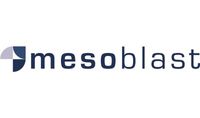

- Home
- Companies
- Mesoblast Ltd.
- Products
- Mesoblast - Model Remestemcel-L - ...
Mesoblast - Model Remestemcel-L -Investigational Therapy Comprising Culture-expanded Mesenchymal Stromal Cells
Remestemcel-L is being developed for inflammatory diseases in children and adults including the treatment of acute graft versus host disease (aGVHD), a potentially life-threatening complication of an allogeneic bone marrow transplant (BMT). Currently, there are no products currently approved in the United States for treatment of steroid-refractory aGVHD in children under 12, and off-label options have demonstrated mixed efficacy with high toxicity.
Remestemcel-L is an investigational therapy comprising culture-expanded mesenchymal stromal cells derived from the bone marrow of an unrelated donor. Remestemcel-L is thought to have immunomodulatory properties to counteract the cytokine storms that are implicated in various inflammatory conditions by downregulating the production of pro-inflammatory cytokines, increasing production of anti-inflammatory cytokines, and enabling recruitment of naturally occurring anti-inflammatory cells to involved tissues.
Aggregated results from 309 children treated with remestemcel-L were presented at the 2020 annual meeting of the American Society for Transplantation Cellular Therapy and the Center for International Blood & Bone Marrow Transplant Research (TCT). The data showed that treatment with remestemcel-L across three separate trials resulted in consistent treatment responses and survival outcomes in children with steroid-refractory aGVHD.
Key findings and conclusions were:
- Consistent safety and efficacy were observed across the continuum from first-line treatment after steroid failure through the most challenging patients who received remestemcel-L as salvage after exhausting all other options
- In the aggregated dataset, 204 of the 309 (66%) patients achieved an overall response at Day 28 following a four-week course of remestemcel-L
- Results were consistent across all grades of disease, including most severe (IBMTR Grade C/D or Glucksberg Grade 3/4)
- In the most severe patients (Grade C/D), who accounted for 82% of all treated patients, Day 28 overall response was 65%
- Overall response at Day 28 was strongly predictive of survival at Day 100 and Day 180
- Day 28 responders were more than twice as likely to survive as non-responders (84% vs 39% at Day 100, and 83% vs 38% at Day 180)
- Remestemcel-L was well tolerated with no infusion-related toxicity and no identified safety concerns
